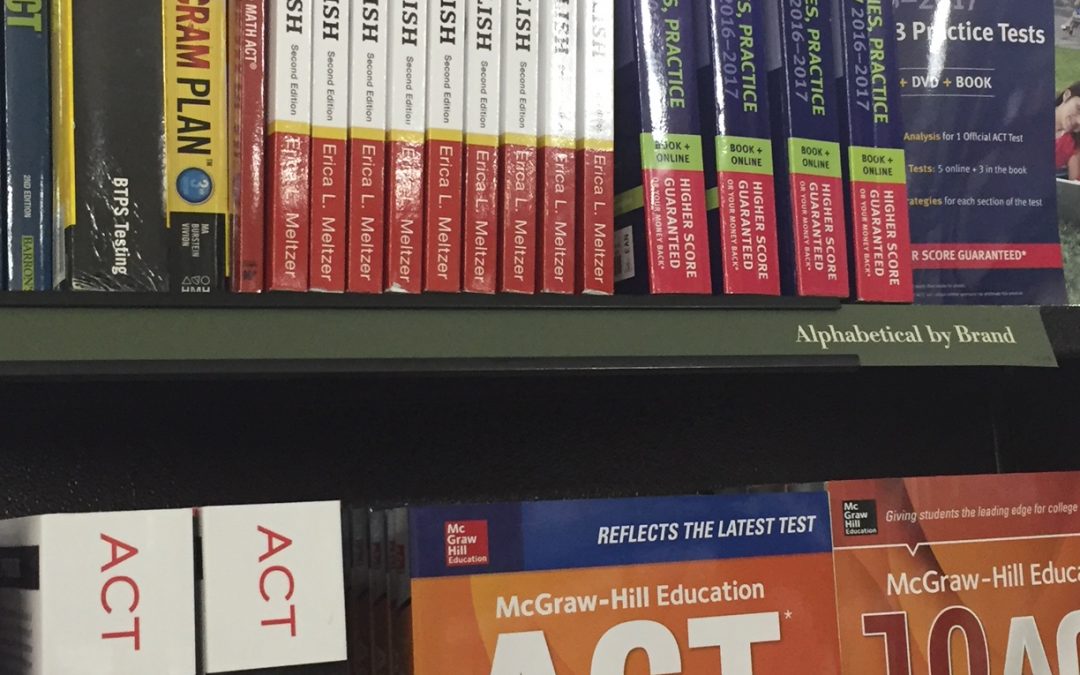
by Erica L. Meltzer | Sep 15, 2018 | Uncategorized
Summer SAT prep has become a rite of passage of sorts for rising juniors, but once school starts again, the timeline can get a little fuzzy. What if that first set of scores, from a test in September or October, seems pretty solid? Is it ok to walk away, or is a retake called for, and if so, when?
Much of the time, I suspect, students’ instinct is to think, I spent all that time prepping over the summer… I have lots of stuff to do now, and I don’t want to have to think about this anymore — can’t I just stop? I want to address this because I think it’s a common question, and the answer isn’t necessarily what people want to hear. Obviously, the desire to get the standardized testing process over with as quickly as possible is understandable; however, prepping early does not — and in many cases should not — automatically translate into being done early. (more…)
by Erica L. Meltzer | Mar 12, 2018 | Uncategorized
Wiki Ezvid, a video-based research site, has named The Complete Guide to ACT English, Third Edition, one of the ACT Prep books of 2018.
It’s ranked #1 in the “high end” (!) category, and #6 overall.
You can see the full list here.

by Erica L. Meltzer | Oct 10, 2017 | Uncategorized
A few months back, a rather startling article appeared in the Education section of The Washington Post. Written by Colorado mother Cheri Kiesecker, who decided to investigate the College Board’s use of student data after seeing the number of personal questions asked on her child’s school-administered PSAT 8/9 test, the piece explains how the College Board has effectively transformed itself into a massive data-collection organization and is profiting from the sale of student information.
The entire article is well worth reading — and I would strongly recommend that anyone who is about to take the PSAT or who has a child about to take the PSAT do so — but one of the most important takeaways is as follows: (more…)

by Erica L. Meltzer | Sep 8, 2017 | Uncategorized
At long (long, long) last, GRE Vocabulary in Practice is available for purchase on Amazon.
The book does have lists of words and definitions, but the focus is on application rather than memorization. While there are obviously many traditional GRE vocabulary books/apps out there, this is the only one designed entirely to help you make the leap from the words to the test. Learning definitions is not the same thing as learning to work through Text Completions and Sentence Equivalences! (more…)

by Erica L. Meltzer | Nov 5, 2016 | Blog, College Admissions, Parents, Uncategorized
The New York Times Education Life section has published a very important article about some of the hidden costs of college. It focuses on the fees that schools tack on for everything from orientation to “student excellence,” and that families paying for college may not even be aware of until they get the bill.
Apparently, many of these charges used to be covered by tuition but in recent years have been increasingly shifted to the “fees” category, where they can no longer be covered by scholarship money. (more…)
by Erica L. Meltzer | Oct 31, 2015 | Blog, The New SAT, Uncategorized
From Emmanuel Felton’s Atlantic article, “How the New SAT is Taking Cues from Common Core:
While other standardized tests have also been criticized for rewarding the students who’ve mastered the idiosyncrasies of the test over those who have the best command of the underlying substance, the SAT—with its arcane analogy questions and somewhat counterintuitive scoring practices—often received special scorn.
And this:
On the reading side, gone are analogies like “equanimity is to harried” as “moderation is to dissolute…Eliminating “SAT words” isn’t the only change to the new reading and writing section, which will require a lot more reading…The passages themselves are changing, as The College Board tries to have them represent a range of topics from across the disciplines of social studies, science, and history.
Emmanuel Felton is entitled to his own opinion about the SAT; he is not entitled to his own facts.
The SAT eliminated analogy questions in 2005 — that was 10 full years ago, in case you didn’t care to do the math. Yet his article very directly implies that these questions are still part of the exam.
Felton also does not acknowledge that the SAT already includes passages drawn from fiction, social science, science, and history, on every single test. The fact that the passages are not explicitly labeled as such, as they are on the ACT, does not mean that they are drawn randomly.
These are exceedingly basic facts, which presumably could have been checked with five seconds of internet research and a quick glance through the Official Guide.
Does the Atlantic not employ fact-checkers? Or does it simply not care about facts?
Furthermore, the small print at the bottom of Felton’s article indicates that it was written “in collaboration with the Hechinger Report.” On its website, The Hechinger Report describes itself as “… an independent nonprofit, nonpartisan organization based at Teachers College, Columbia University. We on support from foundations and individual donors to carry out our work.” (Unsurprisingly, the Gates Foundation is listed among those donors.)
Why on earth is a publication produced by an Ivy League university allowing this type of blatant misinformation to be disseminated?
If you are going to take potshots at the SAT in a major national magazine, fine; people have been doing that for decades. At the very least, though, those criticisms should be anchored in some sort of reality.
Even by the very questionable standards of general reporting about the new SAT, this is sloppy, lazy work.



